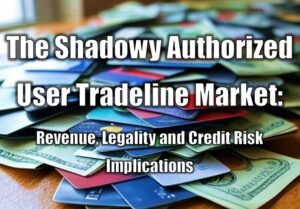 Guest Editorial
Guest Editorial
If you read CUCollector, which is an excellent forum for information and accuracy for the collateral recovery industry and the lending community you probably read the recent article regarding a lawsuit filed in federal court under the FDCPA by Wanda Vantu v. Echo Recovery, LLC, et al. This article has stimulated lots of discussion, the primary reason being that many in the collateral recovery industry as well as some lenders seem surprised that a Section of the FDCPA specifically applies to collateral recovery agents (Security Enforcers as defined by the Federal Trade Commission). I would like to follow up on the CUCollector article because, due to the proliferation of Wrongful Repossession lawsuits being litigated in federal courts I believe this is a subject that warrants further discussion and clarification.
If you read the case background on Vantu v. Echo Recovery you will see that Vantu objected to the repossession and then got in the van and tried to drive to her ex-husbands house. The recovery agent blocked Vantu from leaving, which started a confrontation, and then he pointed a pistol at Vantu’s head while shouting profanities.
According to virtually all established repossession case law, at the time Vantu voiced her objection to the repossession the recovery agent lost his “present” right to take possession of the vehicle. Notice I said “present” right because the recovery agent could have attempted to repossess the vehicle at a later time. The fact that the recovery agent blocked the vehicle, started a confrontation and pointed a pistol at Vantu just exacerbated the situation. In going forward with the repossession the recovery agent, as explained by the court, Breached the Peace; by refusing to leave when Vantu objected to the repossession, by blocking in the vehicle, by creating a confrontation and by pointing a pistol at Vantu’s head.
There is no question that a lawsuit could have been filed in this case in state court against the recovery agent, Echo Recovery, and the lender under that state’s consumer protection laws. So, why not simply file this action is state court? First, let’s take a look at how this case was successfully filed under the FDCPA since many in the recovery industry, and some in the lending industry mistakenly think that the FDCPA applies only to third party debt collectors.
The Federal Trade Commission (FTC), in defining and clarifying the FDCPA states, in part that, “Those engaged in the enforcement of the self-help provisions of Security Agreements, which allow for repossession upon default, are defined as “security enforcers” rather than debt collectors and, therefore, are subject to only the requirements of Section 1692f(6), which states that the following is a violation of this Section:
“Taking or threatening to take any non-judicial (Self-help) action to effect dispossession or disablement of property if;
(a) There is no present right to possession of the property claimed as collateral through an enforceable security interest.
So, when Vantu verbally objected to the repossession, at that point, under Section 1692f (6) (a), the recovery agent lost his “present” right to possession of the vehicle. And that is why this action could be brought in federal court rather than state court.
Another issue in the Vantu litigation was whether the recovery agent was an employee of Echo Recovery or an independent contractor. This question was answered not only by this court but also by abundant Case Law. In the end it doesn’t matter because when a Breach of the Peace is committed during a repossession, liability extends to all parties, including the lender.
Now, the question is, why not file an action in state court since that process is usually played out more quickly than in federal court. The answer is, It’s all about the money! Several years ago I was attending a national conference where the featured speaker was a noted “consumer” lawyer. In his presentation he stated that the proliferation of Wrongful Repossession lawsuits now being filed in federal court rather than state court was that the plaintiffs (and thus the attorney) usually realized almost twice the monetary awards as would have been awarded in state court.
Now, the “rest of the story.” If you are one of the almost 7,000 graduates of the C.A.R.S. National Certification Program you already knew about how the FDCPA addresses the self-help repossession process because this information is included on the first page of the first section of the C.A.R.S. Certification Program and it has been there since the introduction of the program in 1999.
And, as a C.A.R.S. certified recovery agent you also know the importance of professional certification in ensuring the public safety and managing the “inherent” risks associated with the self-help repossession process, and knowledge of the numerous federal and state laws that can impact self-help repossession activity.So, if you are basing your ability and expertise to service repossession assignments by watching those “reality repo” shows rather than training and professional certification you might want to begin practicing your courtroom demeanor. Consumer lawyers send you their love and encouragement to “keep on keeping on” with what you are doing.
Recovery Industry Services Company (RISC) is the owner and administrator of the C.A.R.S. Certification Program and is recognized within the collateral recovery industry as a leader in the fields of risk management and industry standards that meet both CFPB and lender compliance requirements. RISC has the only state licensed school that develops training and certification programs exclusively for the collateral recovery industry. Our services include: Compliant Agent Network (CAN) membership, national certification through the C.A.R.S. National Certification Program, compliance vetting and training, Continuing Education courses, office and storage facilities inspections, business consulting, repossession insurance consulting, lock-smith training and supplies, automotive key codes, discount programs, and a $1 million Client Protection Bond for members of the RISC Compliant Agent Network. For more information, please e-mail RISC at services@RiscUS.com, call 866-996-7472, or visit our website at www.RiscUS.com.
Be safe,
Joe Taylor
Vice President
Director of Education
RISC











Facebook Comments